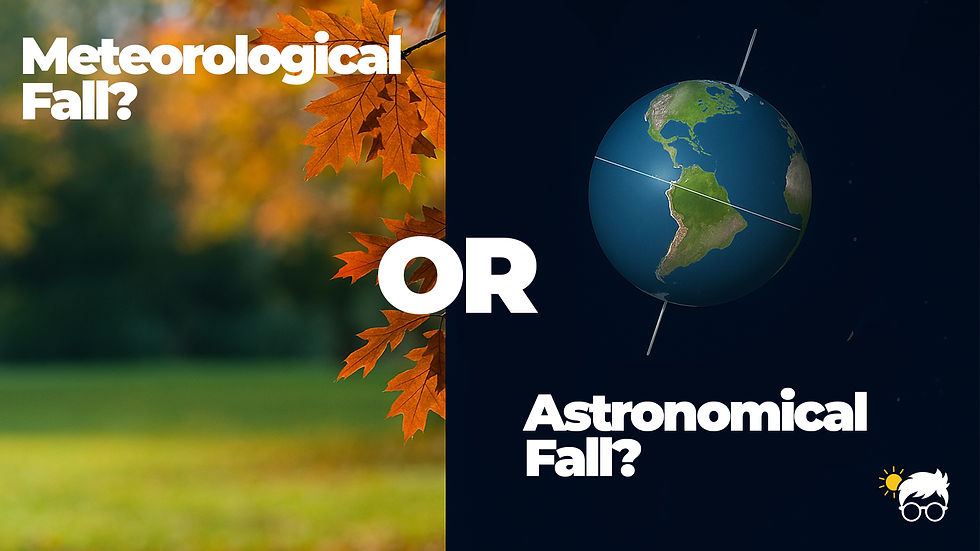Meteorological fall: why it’s the season that actually makes sense
- Ric Kearbey

- Sep 1, 2025
- 2 min read
Updated: Sep 4, 2025

Surprise, it’s already fall. Well…if you ask meteorologists. September 1 marks the official start of meteorological fall, and while the equinox crowd might roll their eyes, this system is the one that actually makes sense.
Two definitions, one confusing planet
Most people grew up learning about the seasons based on astronomy:
Fall starts with the autumn equinox (when day and night are nearly equal).
Winter kicks in at the solstice (the year’s shortest day).
And so on, with spring and summer tied to their own solar markers.
Sounds poetic, right? It is. But it is also messy. The exact dates shift year to year. Sometimes fall starts on September 22, other years September 23. And it all depends on where the Earth is tilted toward or away from the sun.
That is great for stargazing and ancient calendars, but not so great for keeping track of weather and climate data.
Why meteorological fall is cleaner
Meteorologists decided long ago that it made more sense to chop the year into tidy, three-month blocks:
Fall = September–November
Winter = December–February
Spring = March–May
Summer = June–August
That way, climate records line up neatly with the calendar, data comparisons stay consistent, and you do not have to remember which day the equinox lands on this year.
And honestly, by early September, most of us are already feeling the shift anyway. Kids are back in school, football season is starting, leaves are turning in northern states, and pumpkin spice has been on store shelves since mid-August. Meteorological fall matches what real life feels like.
The nerd factor
Meteorologists care about patterns, averages, and long-term trends. You cannot build clean 100-year climate charts if the start of fall wobbles by a day or two every year. By using meteorological seasons, scientists can compare apples to apples: every September–November is exactly the same window, every time.
Think of it like bookkeeping. Would you rather balance your budget on floating dates that shift each year, or on a fixed calendar month system? Exactly.
So…which one is right?
Both definitions are valid. Astronomical fall is about sunlight and Earth’s tilt. Meteorological fall is about how the atmosphere behaves.
But if you care about weather, temperature trends, and climate science, meteorological fall is the champ. It is the system that lines up with the way we actually live, track, and plan around the weather.
The nerdy bottom line
September 1 = FALL.
So go ahead, sip that pumpkin spice, break out the hoodie, and put up the decorations. Even if the thermometer still says summer where you live, meteorological fall says you are in the clear.
Science approves.




Comments